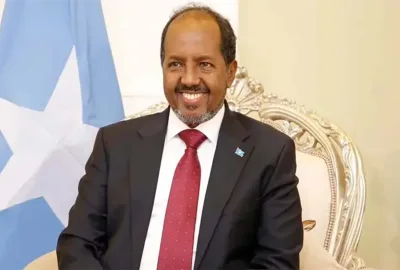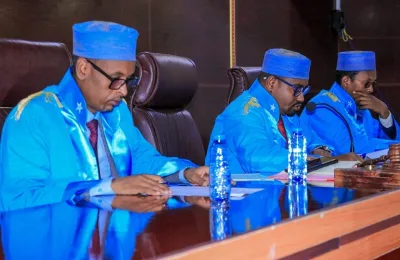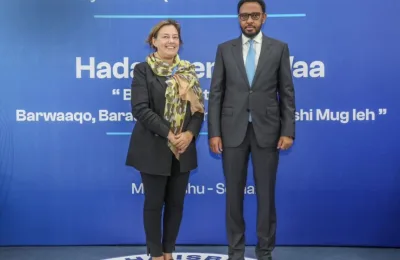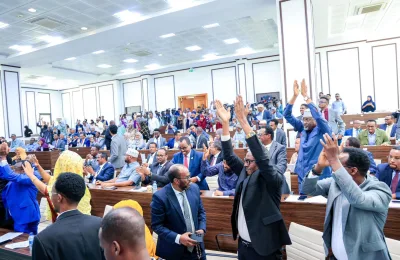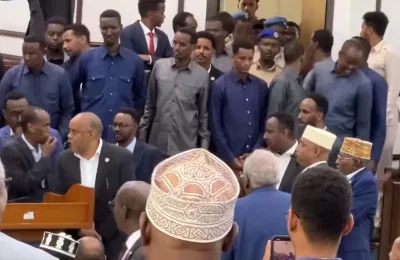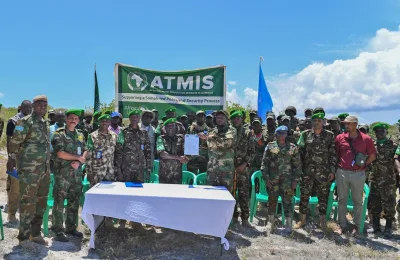U.S. President Barack Obama concluded his five day tour to Africa with a remarkable and historical…
 U.S. President Barack Obama concluded his five day tour to Africa with a remarkable and historical speech at the African Union headquarters in Addis Ababa, Ethiopia, becoming the first American President to deliver a speech over there.
U.S. President Barack Obama concluded his five day tour to Africa with a remarkable and historical speech at the African Union headquarters in Addis Ababa, Ethiopia, becoming the first American President to deliver a speech over there.
The speech which concerned different issues was welcomed by millions of Africans who were delighted to hear about the President’s powerful message to the African dictators, whom he criticized them for clinging to power and not respecting the constitutions of their countries.
“Sometimes you will hear leaders say ‘I’m the only person who can hold this nation together.’ If that’s true, then that leader has failed to truly build their nation.”
Africa has seen most of its leaders remaining in power for the longest times, and it seems as if the trend will continue well into the future. Although in recent years, we’ve seen certain African dictators successfully be removed from power, there are still quite a number of them that are able to circumvent the “rules” and continue to rule their respective nations.
It seems like they come to power with one understanding: Winner takes all for ever and ever and to heck with the rest…. The same old story repeats itself with alarming similarity from one country to the other. When will these people learn? Why do they refuse to learn? Why do they refuse to adapt to new ideas, even if those ideas are foreign? Why do they insist on putting their personal interests above national interests? Why do they seem content on getting richer and richer while the masses linger in abject poverty?
This is a big thing for Africans. The post-colonial leadership that governed after the 1960s had fought for independence so Africans could determine their rulers. That’s why the leaders immediately after colonial rule were initially adored. Today, in some African countries the citizens suffer under a new yoke: tyranny imposed by rulers who deny Africans the right to elect who governs them.
In Africa leaders do not give chances to the young people but prefer to die over power and must be removed by force and cannot step down and cannot accept defeat or democracy. Age is progressive and retrogressive. Life has natural developmental stages within which certain activities are effective and non-effective. True democracy is devoid of patronage, intrigue and corruption.
African leaders enrich themselves and their families. Nepotism thrives in Africa where you will find a wife brother and children having posts in the government.
Six years ago, during his first visit to sub-Saharan Africa as U.S. president, Barack Obama delivered a rousing address to Ghana’s Parliament, the Accra Speech, that was meant for the entire continent. He called for an end to life-presidency in African countries and announced that the U.S. would support countries that: adhere to political transparency and transition in leadership; the ones that fought corruption; and, the ones that respected their constitutions and the rule of law. The days of the strong man were over, he said.
But that Accra message, which was welcomed by millions of ordinary Africans, was diminished and even perverted. Subsequently the Obama administration yielded to politics. It continued supporting dictatorial rulers such as Uganda’s Yoweri Museveni and Rwanda’s Paul Kagame.
Like administrations before it, the Obama White House has come under fire from some quarters for keeping the aid tap on in countries that routinely trample upon human rights and civil liberties. These advocates argue that the steady flow of U.S. aid money to Africa’s autocrats only prolongs their hold on power.
However, many believe that the U.S. can help make this happen by ending military support for regimes whose leaders usurp the will of the people by denying them the right to elect their leaders. If the U.S. wants allies against militancy in Africa its most reliable partners would be those freely elected with popular mandates not tyrants.
Finally, it is necessary to reiterate the earlier points about the need to reduce state/regime power accelerate constitutional literacy and strengthen democratic institutions, including Parliament and the electoral body. Achieving these ends would create an environment that is conducive for orderly and sustainable leadership succession in Africa. And leaders who accomplish the democratic ideal of many generations will always be remembered in the hearts and minds of the African peoples. Otherwise, the democratic ideal is in peril, and the future of most Africa is bleak and unpredictable.
Follow the writer on twitter: @AbdirahmanAyub


